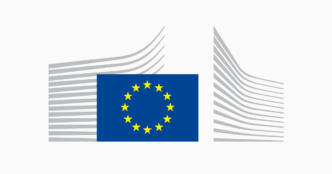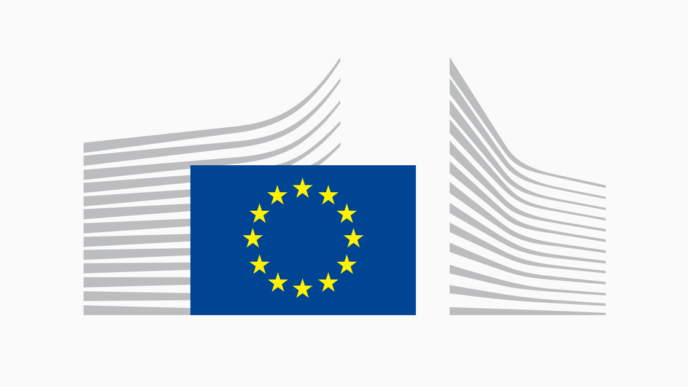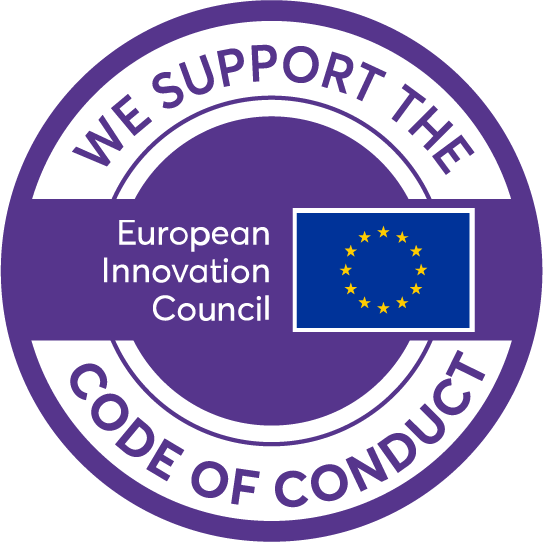Generative AI is increasingly affecting our society. Our health and education systems, science, public administration and industrial ecosystems are progressively adopting this technology. A new JRC study provides policy makers with insights to address its risks and opportunities.
The EU is strong in generative AI research, but lags on patents and investments
The global competitive landscape of generative AI is dominated by USA and China. The EU ranks third, contributing 7% of global generative AI activities compared to China’s 60% and the USA’s 12%. These include research, new patents, as well as business operations and investment in the technology.
Europe is second globally in generative AI research publications, producing 21% of papers worldwide, more than 3,000 in 2023. However, EU patent filings represent only 2% of the global amount, underscoring the need for investments in generative AI innovative solutions. Moreover, European generative AI startups face difficulties accessing venture capital, with a significant funding gap compared to the US.
How generative AI supports different economic sectors
Generative AI could bring considerable productivity gains, especially in high-skill professions. The report analyses how generative AI is impacting specific sectors.
For example healthcare, where generative AI could help face the pressure of an aging population and workforce shortages. Generative AI can be used for personalised medicine, the prevention and early diagnosis of diseases, or the creation of coherent overviews from fragmented medical information. The high potential of generative AI in healthcare is reflected in the large share of activity in the EU, which accounts for almost 10% of the total generative AI research, innovation, and business activities.
Education is another sector where generative AI could prove particularly useful, helping teachers customise learning materials and experiences for their students. However, developing adequate policies and competences is essential to support the integration of generative AI in the education system.
New business models prompted by generative AI are emerging in the manufacturing sector. For example, the new generative AI model, the agentic AI, allows the autonomous management of production tasks, automating processes, optimising supply chain or reducing waste, overall leading to improved efficiency.
The shifts in the labour market and AI-related skills
Generative AI is shifting labour market dynamics. Doctors, teachers, engineers and other high-skill professions are being impacted more by generative AI than previous technological innovations. For example, a JRC study found that teachers were more exposed to AI than 90% of other occupations.
Generative AI is also causing a shift in the demand of skills, highlighting an increased need for transversal skills such as critical thinking, emotional intelligence, and digital skills related to the development and maintenance of AI systems.
Impacts on social groups and inequalities
Generative AI impacts different demographics in different ways. It can be very helpful for children, personalising learning experiences, supporting creative expression, and enhancing communication. This could especially help children with disabilities or facing language barriers. However, the report highlights how generative AI poses risks of manipulation and privacy concerns. As children’s cognitive capacities are still in development, they are more vulnerable to the dangers of false information.
Additional risks are linked to generative AI systems presenting biases and stereotypes, particularly if their data reflect historical and systemic inequalities. A JRC experiment found gender bias in AI models used for financial decision-making, with a gap of around 4% in favour of men, a result similar to other studies on models used by banks to perform risk assessments. Women risk facing inequalities also in recruitment, as AI algorithms have been observed to favour male candidates over equally qualified female candidates.
Ways forward and strategies for policy responses
Policy responses need to consider these complexities. Among strategic opportunities, the increasing demand for AI-driven solutions in several industrial sectors can be a driver for AI startups to capitalise on these trends and deliver innovative solutions.
One of the key challenges is to ensure that generative AI systems prioritise transparency and accountability, but also diversity, fairness and equality. This requires multiple strategies, such as enhancing the diversity and interoperability of datasets, conducting audits and regular monitoring, and increasing diversity among AI developers.
Another crucial aspect will be the need to invest in education and training programmes that promote critical thinking and media literacy skills to mitigate the impact of disinformation.
Background
On 9 April the Commission published the AI Continent Action Plan, with the objective of becoming a global leader in Artificial Intelligence. The plan outlines the need to shape the future of AI in a way that enhances our competitiveness and innovation, while safeguarding EU values.
With the upcoming Apply AI Strategy, the EU will accelerate AI adoption and drive innovation “made in Europe”, not only for the industry but also in the public domain, such as in the healthcare sector. It will serve as the EU’s overarching AI strategy, finding relevant connections with other initiatives such as the European Strategy for AI in Science, which will be adopted at the same time.














